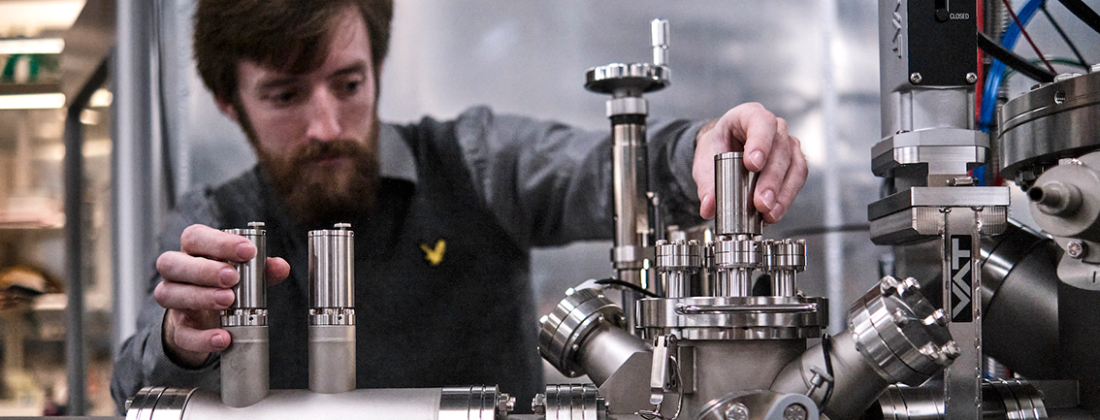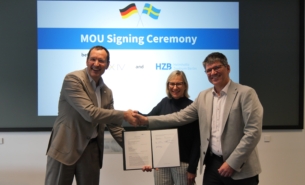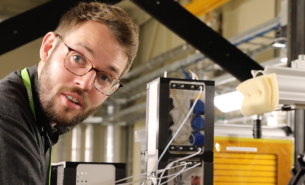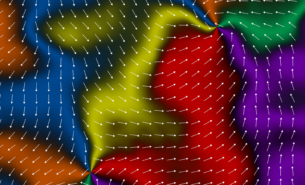The winner of the Student Science Award was announced at the 34th MAX IV User Meeting held in early October. User Meeting organizers and a team of three external adjudicators awarded the student submission based upon the criteria: research quality and potential impact. This year’s Student Award recipient is Harald Wallander for his research on characterizing ultra-thin materials during catalytic action.
Wallander is a PhD student in the Department of Materials Science and Applied Mathematics at Malmö University (MaU) in Malmö, Sweden. His research focus is on material oxide layers with one up to a few atomic layers thick. With material so thin, new and unexpected properties can be explored, says Wallander. The work highlighted for the award includes measurements of thin surface layers during a catalytic reaction using X-ray Photoelectron Spectroscopy (XPS) at HIPPIE beamline. His group also typically uses X-ray Diffraction (XRD) and X-ray Absorption Spectroscopy (XAS) for investigations.
“It is difficult to measure on a surface, especially while a reaction is taking place on it, and no measurement technique we use provides complete information. That makes our job detective work, where we hunt the chemistry, morphology, and activity, and how they relate to each other, in a way that is intellectually stimulating. On a day-to-day basis, that’s what I would say makes our job exciting,” explained Wallander. “Of course, it is also very exciting with all the potential areas of use that the materials we work with can have, but that is in a much longer perspective.”
The large-scale use of catalysts is important for the functioning of modern society, and yet the material mechanics are not fully understood. Greater fundamental knowledge could open the door for the development of better and more cost-effective catalysts, and related new technologies.
Upon receiving the Student Science award, Wallander thanked the MAX IV staff and judges. “It is an honor and a bit of a surprise to receive an award for your research! This feels like confirmation that what you work with is important and that you are doing it well.”




